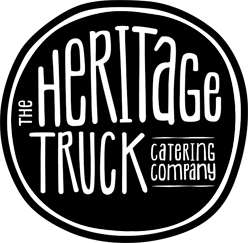HERITAGE CATERING: CONNECTING THE DOTS OF FARM, FOOD AND HEALTH IN MASSACHUSETTS
At Heritage, our catering business operates at the intersection of innovative agriculture, food and health.
- We source our produce from local farms, change our menu with each season, and advocate for the economic development of local farms in New England. This is the agricultural part of our heritage.
- Our chef curates cuisines of the world, as an advocate for the ethnic diversity and culinary creativity of the population of the city of Malden where we are based. This is the food part of our heritage.
- Our meals follow a research-based, “eat the rainbow”, nutritional color scheme where each fruit and vegetable contributes to preventing specific ailments in the human body. This is the health part of our heritage.
Combining these three ingredients, our food is delicious, affordable, nutritious, sustainable, profitable and socially transformative. This constitutes the scorecard through which we measure our performance.
OUR STRUCTURE
Heritage Food Truck Catering is a for-profit Limited Liability Company (LLC) with a triple mission of encouraging the development of local agriculture, fostering the ethnic diversity of food in greater Boston and contributing to the health of local population.
OUR FOOD: THE DIVERSITY OF CUISINES OF THE WORLD
At Heritage, we love the American tradition of each wave of immigrants bringing their foods with them as an expression of their culture. The city of Malden, where our kitchen is based, is a gastronomical melting pot where first generation Italian tomato pasta and Irish brisket happily cohabit with more recent waves of Latin American empanadas, Chinese dim sum, Indian idli and Nigerian soups. Our chef Lorena Lorenzet views herself as the humble curator of those traditions, subtly adding to those dishes a local farm overlay, a healthy touch and a culinary inventiveness that is uniquely hers.
We are happy to work with you and develop menus that range from basic, affordable meat and potatoes fare to more expensive exotic culinary explorations. Please see our menu page (link) to get a sample of current menu items for this fall (link).
GOOD FOOD CAN BE HEALTHY: THE “EAT THE RAINBOW” PHILOSOPHY
A humorist once reflected that most nutrition theories are the moral equivalent of “if it tastes good, spit it out”. At Heritage, we strongly disagree with this negativist view of health. Food is about eating great-tasting foods that also happen to prevent inflammation in the human body.
One of the most powerful ways to prevent inflammation in our body is to eat vegetables and fruit exhibiting vibrant colors (inside and outside). Yes, color vibrancy is correlated with health, so at Heritage, we take our colors seriously. This is where our relationship with local farms is particularly potent. There is biological magic to the red lycopene of tomatoes in staving off cancer, in the orange of beta-carotene in squash to prevent cardio-vascular incidents and in the blue of anthocyanin in blueberries to strengthen mental functions. At Heritage, we create dishes with a color dominant that, when eaten in combination, walk you to the end of the rainbow where golden health lies.
We also believe that salt, sugar and fats are part of the fun of life and can be used to make food taste good if introduced wisely. Because they can cause inflammation, we combine them with “antidote agents” that reduce their potentially negative effect. When it comes to fats, we make sure our meals contain a good balance between omega-3 (the good fat) and omega-6 (the bad fat), something we achieve by utilizing livestock and fish that are free to roam and fed what their digestive system was designed to handle. We rely on the neutralizing power of potassium to counteract the role of salt (for example, we use sea salt, because it contains potassium, which is better than fine salt). We also utilize the vacuum flushing power of fibers (and proteins) to reduce the potentially detrimental effect of sugar.
LOCAL FARMS AS AN INTEGRAL PART OF OUR FOOD COMMUNITY
At Heritage, local farmers and their staff are much more than suppliers of local produce to us: they are our business partners. The local produce they grow has three major advantages over “big food” produce:
- Our local produce is better tasting. Local produce has an intrinsic advantage over “big food” produce from distant regions, in that it is typically fresher than stuff that has travelled long distances over many days. Also local produce can be grown for taste rather than physical resistance during transportation.
Having said that, not all local farmers are successful at growing good-tasting produce, so we are quite selective in picking farmers who offer the best flavor and nutrition for each produce we utilize. We like farmers who specialize in individual produce (e.g., squash, tomatoes or strawberries), rather than jack-of-all-trades who grow very small quantities of a large number of produce. We want Heritage to become strategic partners to high-quality local farmers who want to develop the scale they need to reach the core of the food market and become major actors in the re-construction of the local ag-food-health chain.
- Our local produce is more sustainable. The first obvious advantage of local produce is to avoid burning transportation fuel cross-country or cross-continent. But we also like to work with farmers who follow the Integrated Pest Management philosophy of being careful about agricultural practices and the use of chemicals. We do not believe that organic is the only way to go, because of the regulatory costs that it imposes on farmers to secure that label (which also results into a higher cost for food).
Today, the overwhelming majority of the fruit and vegetables consumed in Massachusetts comes from areas without water (California), without soil (Florida), with uneven labor practices (Mexico) or with cold climates (Canada greenhouses). Heritage wants to help grow local farms to the point where they can come closer to competing with non-local foods on cost, and exhibit their differentiation more transparently.
- Our local produce helps the economic development of our local community. The history of our country in recent history has been one of disconnecting consumer communities from producer communities. In this process, produce farming and food preparation have been moving away from Massachusetts, thereby reducing farmers to becoming marginal suppliers of local foods through small retail channels such as farm stands, farmers markets and CSAs (Community Supported Agriculture). Local farmers largely sit out delivering to large grocery retailers, large foodservice companies running major institutional cafeterias, and large restaurant chains, which are by far the dominant food channel today. They are also poorly connected to the major food distributors.
At Heritage, we want to help our farmers become relevant economic players that hire a larger and larger population of local residents (by the way, many of those farm employees are also ethnically diverse). We want our local farmers to connect better with local food manufacturers who utilize their produce in their meals and products.
We are particularly interested in connecting Western Massachusetts, where the soil is fertile and farms are larger and more wholesale-oriented, with Eastern Massachusetts, where the bulk of the food-consuming market lies with the presence of Boston. We want Heritage to role-model how Western Massachusetts can participate in the wealth generation of the vibrant Boston food scene through the vibrancy of its agriculture and farm-based products.

